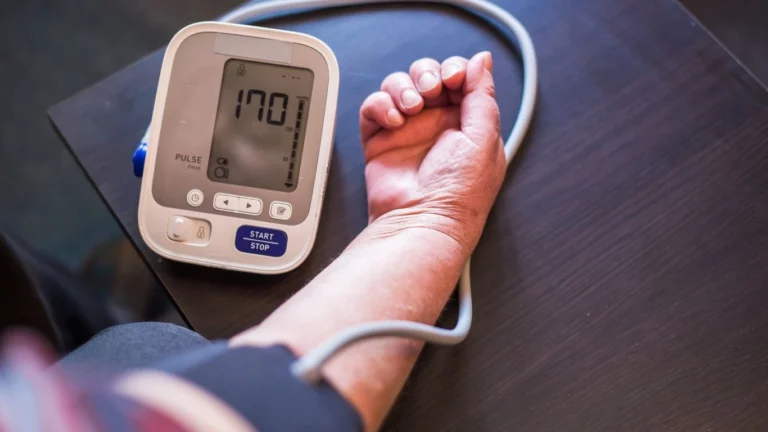Managing Blood Pressure in Your 40s: A Complete Guide
Managing blood pressure becomes even more important as we enter our 40s. By adopting simple changes to your lifestyle, you can stay ahead of the curve and reduce your risk of developing hypertension later in life.
What is Blood Pressure and Why Does it Matter?
First things first: what exactly is blood pressure? Simply put, blood pressure is the force that your blood exerts against the walls of your arteries as your heart pumps it around your body. This force fluctuates depending on various factors like stress, diet, and exercise. In your 40s, your heart is still working just as hard, but changes like weight gain, less physical activity, and maybe even stress can start pushing those numbers up. Hypertension, or high blood pressure, is a condition where your blood pressure stays elevated for a prolonged period of time. And that can lead to some serious health issues, including heart disease, stroke, and kidney damage. But don’t panic! There’s a lot you can do to prevent this from happening.
How High Blood Pressure Affects You in Your 40s
In your 40s, blood pressure can gradually creep up, but it’s not always noticeable until it’s too late. You might not feel the effects of high blood pressure right away, which is why it’s often called the “silent killer.” The good news is, with regular check-ups and a few key habits, you can stay ahead of the curve. Let’s talk about what you can do to avoid this common issue.
Tips for Managing Blood Pressure in Your 40s
1. Get Moving with Regular Exercise
Exercise is one of the best ways to lower your blood pressure. You don’t have to train for a marathon, but aiming for at least 150 minutes of moderate aerobic activity (like walking, cycling, or swimming) each week can make a huge difference. Exercise helps your heart work more efficiently, lowering the strain on your arteries. Plus, it helps reduce stress and manage your weight, both of which are important for blood pressure control.
2. Eat a Heart-Healthy Diet
A diet that’s rich in fruits, veggies, whole grains, and lean proteins can help you manage blood pressure. Focus on foods that are low in sodium and high in potassium, as potassium helps balance the effects of sodium. Think of foods like bananas, spinach, sweet potatoes, and beans. Also, try cutting back on processed foods and salt. Just small changes in your eating habits can have a big impact.
3. Limit Alcohol and Caffeine
While a cup of coffee or a glass of wine now and then is no big deal, consuming too much can raise your blood pressure. Try to keep your alcohol consumption to a moderate level (one drink per day for women, two for men) and be mindful of how much caffeine you’re consuming. If you’re sensitive to caffeine, consider cutting back to see if it makes a difference in your blood pressure.
4. Manage Stress Effectively
Stress is a big contributor to high blood pressure, especially if you’re dealing with life’s challenges in your 40s—whether it’s work, family responsibilities, or financial pressures. Finding healthy ways to cope with stress is key. Activities like yoga, meditation, deep breathing exercises, or just taking a walk can help lower your stress levels and improve your overall health.
5. Maintain a Healthy Weight
If you’ve noticed a few extra pounds creeping up as you’ve gotten older, it’s time to focus on maintaining a healthy weight. Being overweight or obese increases your risk of high blood pressure, so shedding even a small amount of weight can make a big difference in keeping your blood pressure under control. Combine a balanced diet with regular exercise for the best results.
How to Monitor Your Blood Pressure
Monitoring your blood pressure is essential, especially as you approach your 40s. While many people wait for their annual check-up to get their blood pressure checked, it’s a good idea to start monitoring it at home as well. There are plenty of affordable, easy-to-use devices that allow you to track your blood pressure regularly. Keeping an eye on your numbers can help you catch any potential issues early.
When to See a Doctor
If you notice that your blood pressure is consistently high, even after making lifestyle changes, it’s important to see a doctor. Your healthcare provider might recommend medications or additional lifestyle modifications to keep things in check. Early detection and treatment can prevent complications down the road.
Conclusion
Managing blood pressure in your 40s is all about staying proactive. By exercising regularly, eating a healthy diet, limiting alcohol and caffeine, managing stress, and maintaining a healthy weight, you can keep your blood pressure in check and set yourself up for better heart health as you age. Regular check-ups and home monitoring are also key to catching potential issues early. So take charge of your health now, and you’ll be on your way to a healthier heart and a better quality of life in the years to come.

Dr. Gwenna Aazee is a board-certified Internal Medicine Physician with a special focus on hypertension management, chronic disease prevention, and patient education. With years of experience in both clinical practice and medical writing, she’s passionate about turning evidence-based medicine into accessible, actionable advice. Through her work at Healthusias.com, Dr. Aazee empowers readers to take charge of their health with confidence and clarity. Off the clock, she enjoys deep dives into nutrition research, long walks with her rescue pup, and simplifying medical jargon one article at a time.







